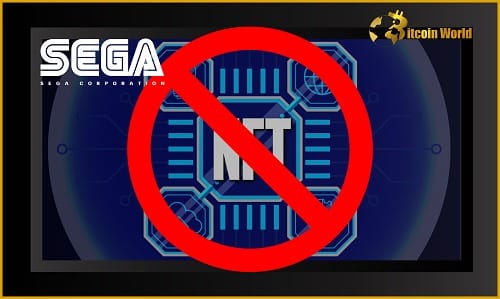Are NFTs in gaming the revolutionary next step, or just another cash grab preying on gamers’ wallets? Sega, a video game industry icon, is treading carefully into the NFT space, voicing concerns that echo the skepticism of many gamers worldwide. While some champion NFTs as a perfect fusion with blockchain and crypto for gaming, a growing wave of players are questioning the true motives behind their push into the gaming world.
Let’s face it, NFT skepticism isn’t new. Remember the uproar over exorbitantly priced NFT artwork? Even though gaming NFTs promise in-game utility, the underlying cynicism persists. Are they genuinely enhancing gameplay, or simply adding another layer of monetization?
Popular YouTuber YongYea, with a massive following of 1.17 million subscribers, recently ignited this debate in a video, highlighting the game industry’s relentless push to “normalize NFTs.” His core argument? Where’s the compelling justification for gamers? How do NFTs genuinely improve our gaming experience?
“Numerous game companies have already expressed their desire to normalize NFTs and have to provide any sort of good reason, explanation, example, as to how this would revolutionize gaming…” YongYea points out, capturing the sentiment of many in the gaming community.
He further criticizes the rising trend of Play-2-Earn models, lamenting the shift where games risk becoming less about fun and immersive experiences and more about serving as “an investment opportunity” for publishers. Is the joy of gaming being replaced by the pressure to earn?
Sega’s Hesitation: Balancing Innovation with Player Concerns
Sega is keenly aware of this brewing opposition. Sega’s CEO, Haruki Satomi, recently addressed the company’s stance on NFTs in a management meeting. While acknowledging Sega’s interest in exploring NFTs, Satomi didn’t shy away from the negative sentiment surrounding them.
He raised critical questions about Sega’s approach, emphasizing the need to navigate regulatory landscapes and, crucially, understand player acceptance. It’s a delicate balancing act between innovation and alienating their core audience.
“We need to carefully assess many things such as how we can mitigate the negative elements, how much we can introduce this within the Japanese regulation, what will be accepted and what will not be by the users,” Satomi articulated, revealing a thoughtful and cautious approach.
Satomi clearly stated that if NFTs are perceived as offering no real value or practical benefits to gamers, Sega will not force them into their offerings. This is a significant statement from a major player in the video game industry, suggesting a potential turning point in the NFT gaming narrative.

Key Questions Surrounding NFTs in Gaming:
- Value Proposition: Do NFTs genuinely enhance gameplay, or are they primarily about digital scarcity and speculative value?
- Player Experience: Will NFTs create a more engaging and rewarding gaming experience, or introduce unnecessary complexity and financial pressure?
- Sustainability: Can Play-to-Earn models be sustainable and equitable, or will they lead to economic imbalances and exploitation?
- Environmental Impact: What are the environmental implications of NFT gaming, especially considering the energy consumption of some blockchains?
- Regulation: How will regulations evolve to govern NFTs and protect gamers within this emerging space?
The Road Ahead for NFTs and Gaming:
Sega’s cautious stance reflects a broader industry dilemma. While NFTs hold the potential to revolutionize digital ownership and in-game economies, their integration into gaming requires careful consideration and a player-centric approach.
For NFTs to truly succeed in gaming, the focus needs to shift towards:
- Meaningful Utility: NFTs should offer tangible benefits within games, such as unique customization options, access to exclusive content, or verifiable ownership of in-game assets that truly enhance the player experience, not just create artificial scarcity.
- Transparent and Fair Systems: Game developers need to build NFT systems that are transparent, fair, and avoid creating pay-to-win mechanics that disrupt gameplay balance.
- Community Engagement: Open dialogue and collaboration with the gaming community are crucial to address concerns and shape the future of NFT gaming in a way that benefits players.
- Focus on Fun: Ultimately, games should be enjoyable. NFTs should be integrated in a way that enhances the fun and immersive aspects of gaming, rather than overshadowing them with financial considerations.
In Conclusion:
The future of NFTs in gaming remains uncertain. Sega’s hesitation highlights the critical juncture the industry is facing. For NFTs to become more than just a “money-making technique,” developers must prioritize player experience, demonstrate genuine value, and build trust within the gaming community. The conversation is far from over, and the next few years will be crucial in determining whether NFTs become a valuable asset to the gaming world or remain a controversial experiment.
Related Posts – Ex-SEC Chair, Jay Clayton Believes Cryptocurrency Industry Is For Long Haul
Disclaimer: The information provided is not trading advice, Bitcoinworld.co.in holds no liability for any investments made based on the information provided on this page. We strongly recommend independent research and/or consultation with a qualified professional before making any investment decisions.


